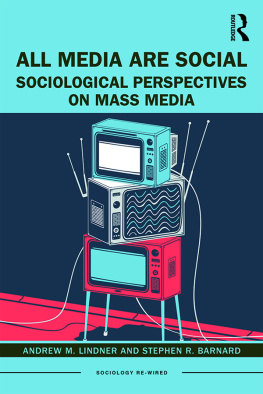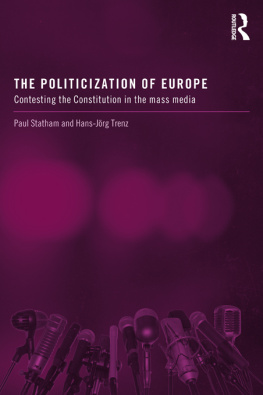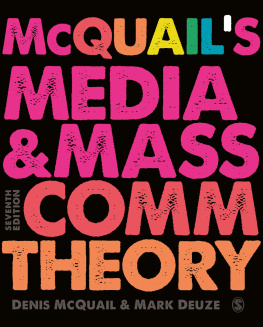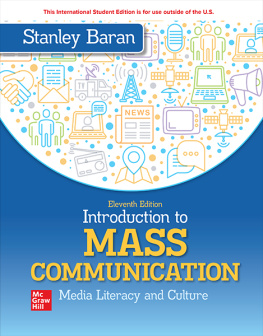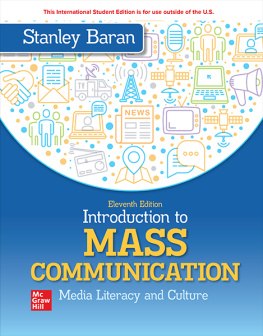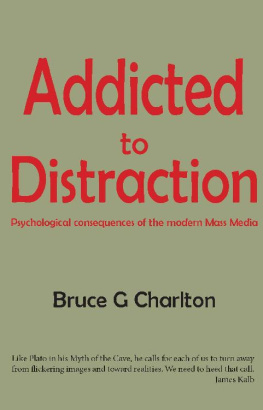POLITICS AND THE MASS MEDIA IN BRITAIN
Second edition
The relationship between politics and the media is a matter of increasingly contentious public debate. As politicians awareness of the importance of the media becomes more sophisticated, and as changes in media technology and control proliferate, questions around this relationship become more complex and pressing. In this study, Ralph Negrine examines the role of mass communications in politics at all levels, from election campaigns, news reports, and lobbying groups, to the media activities of pressure groups. After providing a review of the nature and content of political communications and an examination of recent theories of the media, Negrine goes on to deal with important issues around the new media of cable and satellite television, and investigates the press, the relationship between the state and broadcasting institutions, and the debate on deregulating the British broadcasting system. Finally, he discusses the arguments around the critical question of whether or not Britain needs a media policy. Basing his dis cussion on case-studies and illustrating his arguments with recent examples from television and the press, Ralph Negrine has written a key text for students of politics and the media, which will also be of interest to anyone concerned with the politics of British news and newsmaking.
Ralph Negrine is Lecturer at the Centre for Mass Communication Research, University of Leicester. He is the editor of Cable Television and the Future of Broadcasting and Satellite Broadcasting, and the co-author of The Internationalisation of Television and Images of Disability on Television.
To Ruth, David, Peter, Alice, Jonathan and Eileen
POLITICS AND THE MASS MEDIA IN BRITAIN
Second edition
Ralph Negrine
First published 1989
by Routledge
Second edition published 1994
by Routledge
11 New Fetter Lane, London EC4P 4EE
Simultaneously published in the USA and Canada
by Routledge
29 West 35th Street, New York, NY 10001
Routledge is an imprint of the Taylor & Francis Group
This edition published in the Taylor & Francis e-Library, 2005.
To purchase your own copy of this or any of Taylor & Francis or Routledgess collection of thousands of eBooks please go to www.eBookstore.tandf.co.uk.
1989, 1994 Ralph Negrine
All rights reserved. No part of this book may be reprinted or reproduced or utilised in any form or by any electronic, mechanical, or other means, now known or hereafter invented, including photocopying and recording, or in any information storage or retrieval system, without permission in writing from the publishers.
British Library Cataloguing in Publication Data
A catalogue record for this book is available from the British Library
Library of Congress Cataloguing in Publication Data
Negrine, Ralph M.
Politics and the mass media in Britain/Ralph Negrine.2nd ed.
p. cm.
Includes bibliographical references and index.
1. Mass mediaPolitical aspectsGreat Britain. 2. Great BritainPolitics and government1979 I. Title.
P95.82.G7N44 1993
302.230941dc20. 9319010
ISBN 0-203-35980-1 Master e-book ISBN
ISBN 0-203-37236-0 (Adobe eReader Format)
ISBN 0-415-09468-2 (Print Edition)
CONTENTS
Preface to the First Edition
This book examines the political role of the mass media in contemporary Britain. It covers the main features of the press and television in Britain and, with extensive use of examples, develops an analysis of their relationships with politics and political and social institutions, and the implications of those relationships.
The definition of politics adopted throughout this book is a broad one, namely, that politics creates and conditions all aspects of our lives and it is at the core of the development of problems in society and the collective modes of their resolution. The reason for adopting such a broad definition is that politics and political discourse infuse all aspects of our lives and the mass media play a key role in this process of political communication. Thus, the study of the mass media and elections sits alongside the study of pressure groups use of the modern means of mass communicaion.
Although the book deals with a broad definition of politics, it adopts a more restricted register of mass media. The two most often cited sources of information about the worldtelevision and the presstake pride of place in this book. And within those two media, attention is mainly focused on those aspects of the media which are overtly politicaleither in content or in their implications. Thus, for example, television news and current affairs feature prominently while light entertainment does not; similarly, more attention is paid to political stories in the press than to stories which highlight the sexual peccadilloes of television superstars.
The decision to focus on these areas should not be taken as a dismissal of the other output, nor of their classification as non-political. In their own, and very important ways, the entertainment format, the James Bond film, and the representations of the life and loves of Samantha Fox, are steeped in political implications. Our concern, however, is with the processes, relationships, and structures of political (mass) communication. This orientation towards the more traditionally defined political content of the mass media also explains the absence of any discussion of womens magazines, pop music radio stations or popular films. Again, it is not the absence of political implications that has ruled them out but the specific perspective adopted here as well as the authors limited resources and time. The emphasis is, as Seymour-Ure has recently reminded us, on the means of communication that are for politics.
There are other omissions which the careful reader will note. There is no discussion of the laws which restrict the media in one way or another. The D Notice System, the Official Secrets Act, the law of contempt, the Prevention of Terrorism Act, and matters of libel are all absent from the following pages. There are two major reasons for the decision not to cover them. First, they are well and extensively documented elsewhere and a discussion here would not further our knowledge of them or of their operation. Second, when grouped together they illustrate a fairly simple but vitally important fact about the nature and extent of secrecy in Britain, namely, that the mass media operate within a structure of government that is highly secretive, that is extremely protective of its interests, and that will do its utmost to retain control of information which it deems to be of national interest. Such is the everyday context of the mass media in Britain.
In this last decade the power of government and the force of the law have brought even greater pressure to bear on the enterprising journalist. The roll-call is frighteningly lengthy: Peter Snow during the Falklands campaign; Real Lives: At the Edge of the Union; Kate Adie over the reporting of the American bombing of Libya; Duncan Campbell over the Zircon Spy satellite programme, and the BBC Radio Four programme My Country Right or Wrong on the Secret Service. The fallout from Peter Wrights Spycatcher memoirs has affected the press in a way previously unimaginable and there is no sign that the Government is intent on giving up its fight to muzzle the press.
But it is not only the journalist who has suffered from the effects of a secretive and powerful centralized state machine. Individuals interested in protecting civil liberties and natural justice have also suffered. The two cases which rocked the 1980s testify to this: Sarah Tisdall was imprisoned for leaking documents, though the jury cleared Clive Ponting.


